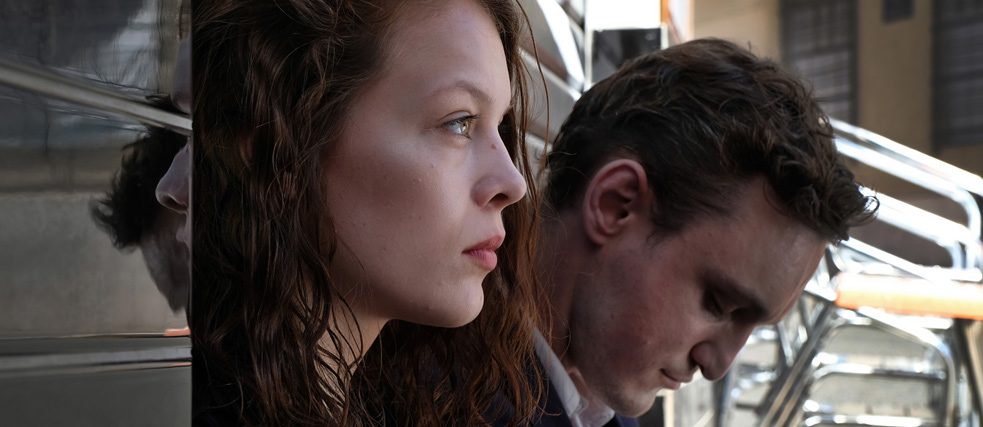Berlinale Bloggers 2018
The Past as Present

Christian Petzold’s Transit, a frontrunner in the Berlinale competition, turns Anna Seghers’ World War II novel of exile into a cautionary tale about present-day developments.
By Philipp Bühler
Christian Petzold’s Transit went down well with the critics and is without question one of the frontrunners in the competition. The idea of setting Anna Seghers’ wartime novel (which is set in 1942) in the present day and age is simply brilliant. Several characters fleeing from the Germans are stranded in Marseilles; waiting for exit visas in a hellish state of transit, they meet up, lose track of one another, but cannot forget what they have left behind.
Everything is as it was in the year 1942, shortly after Seghers, exiled with her family in Marseilles, managed to get hold of a Mexican visa and immediately set about writing down her experiences. And yet the film is clearly set in a grim, menacing vision of our present day and age. Through this modernization, Petzold addresses very current issues of flight, exile, and totalitarianism – while letting the past show through, albeit without any historical frippery.
In limbo between life and death
Petzold also refines his conception of film as a dreamlike realm of transit. His protagonists, Marie (Paula Beer), who is looking for her (dead) husband, and Georg (Franz Rogowski), who has assumed his identity, are like ghosts fleeing from themselves. Tropes from Kafka, Sartre and Hitchcock’s Vertigo flit past – and not for the first time in Petzold’s oeuvre.During the press conference afterwards, the director explained his use of narration as an allusion to the French Nouvelle Vague, which came across as an endearing tribute, as did his homage to the lead, Franz Rogowski, a rising star at the Berlinale, who Petzold says has “Belmondo’s incredibly beautiful sadness“. In very clear-cut terms, moreover, he defended the basic right to asylum, which is ultimately based on experiences like that of Anna Seghers – and he’s undeniably right about that.